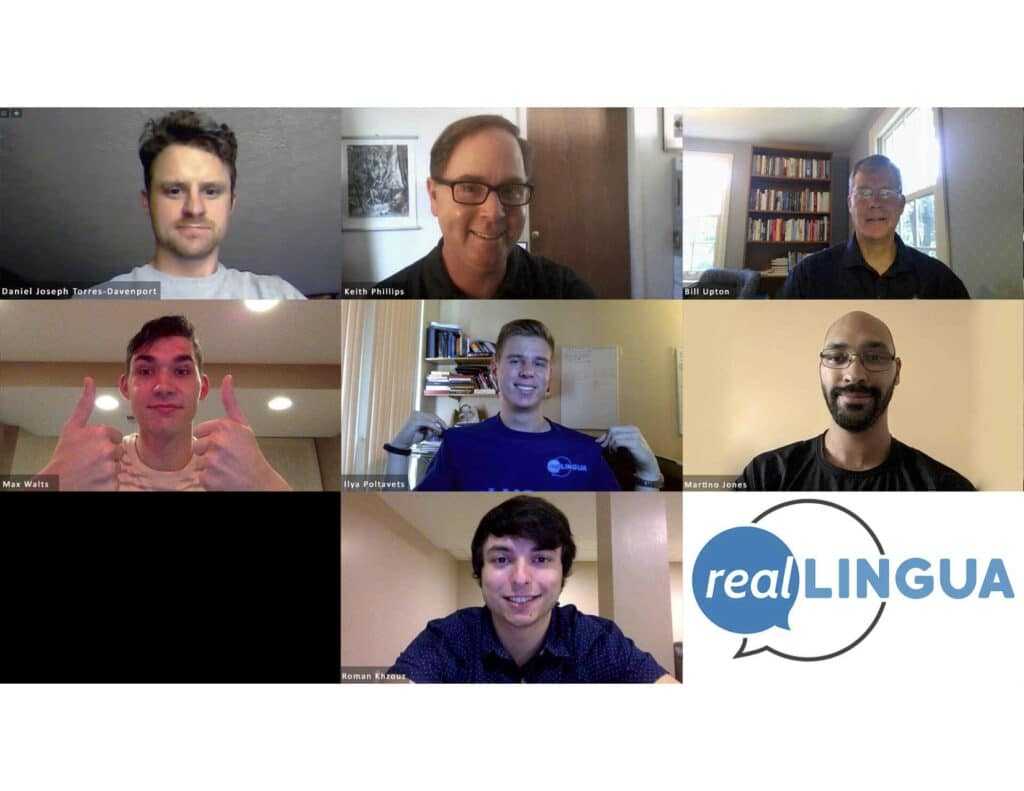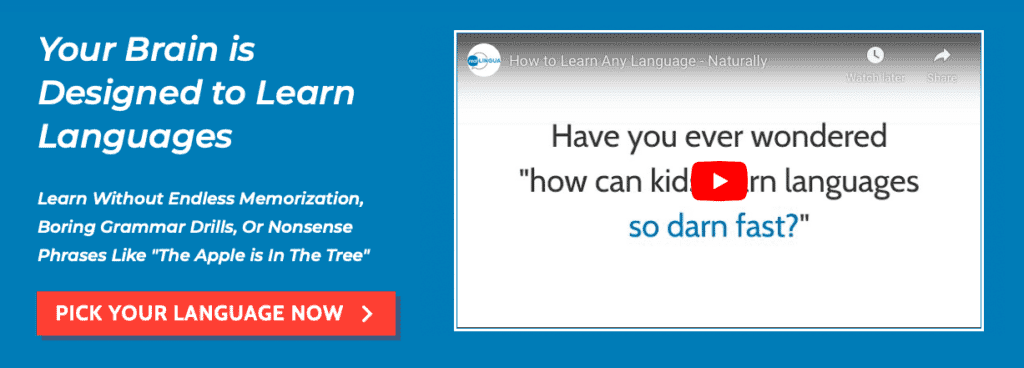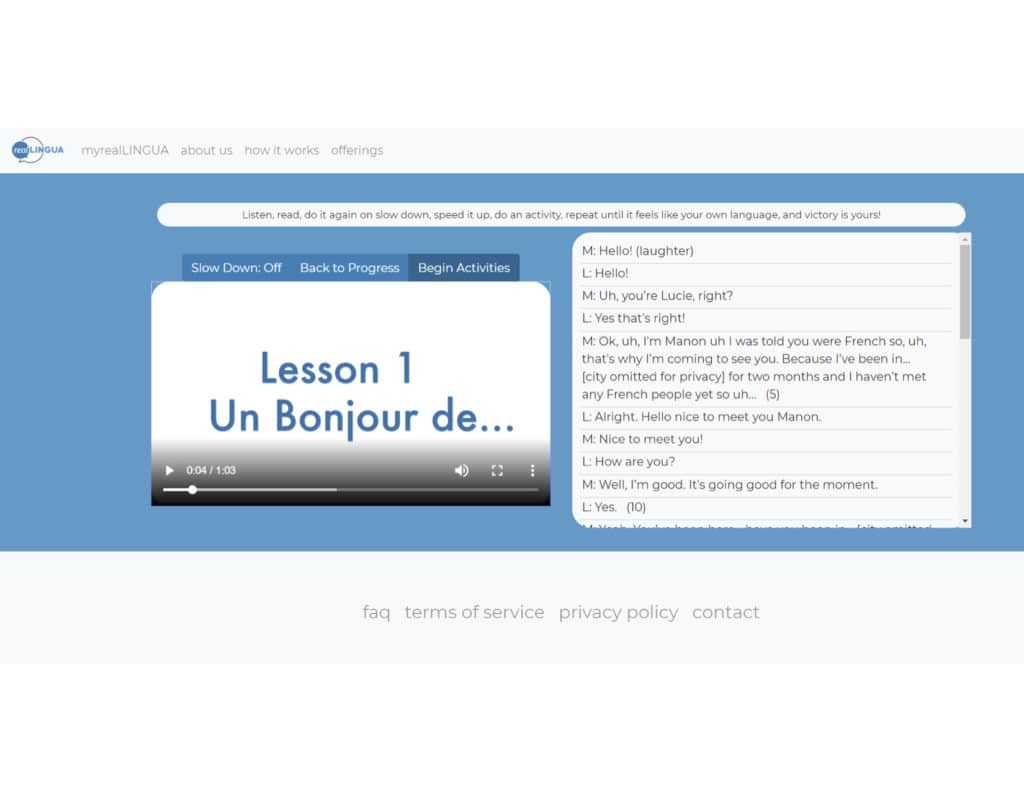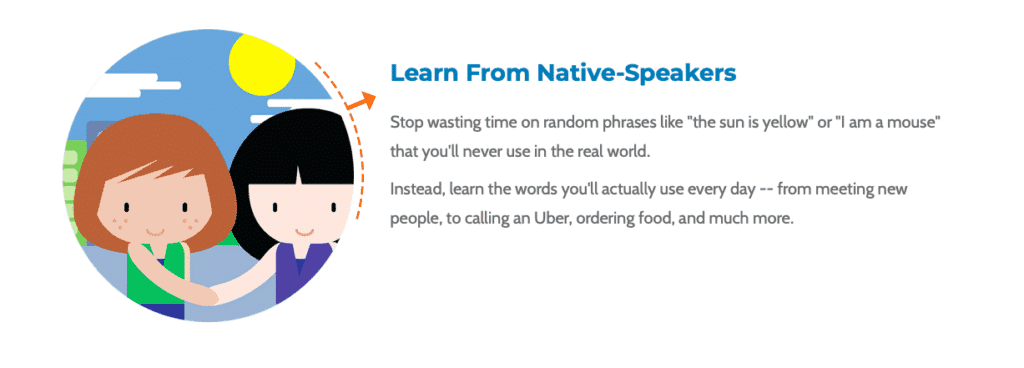Can AI Show Empathy Like a Parent Teaching a Child? realLingua Is About To Show Us
By Laura Cowan
Laura K. Cowan is a tech, business, and wellness journalist and fantasy author whose work has focused on promoting sustainability initiatives and helping individuals find a sense of connection with the natural world.
Patent strategy firm Aurora Consulting in Traverse City recently awarded several startups in the Midwest with a RISE Award, which stands for Relief for Startup Endurance. The prize means that Ann Arbor-based realLingua software startup that teaches online language learning through immersive native language speaker programs can pursue a patent for its new AI-based natural language learning programs. Founder Keith Phillips, whom we interviewed at launch just over a year ago, says that the award will help the startup move forward in several ways. "We've got an idea for the backbone of our conversational AI and wanted to do a provisional patent for that," Phillips says of the recent award.
"The input side of language learning involves acquiring the data of a new language," Phillips explains. "What we've got right now is very solid on the input side."
The patent is for the process that allows realLingua software to engage with the user in a natural almost human way to encourage natural language learning. "The input side of language learning involves acquiring the data of a new language," Phillips explains. "What we've got right now is very solid on the input side." Natural language learning involves learning new vocabulary and grammar through conversational processes and interacting with a teacher that has mannerisms reflecting a friendly relationship to encourage engagement, just like family and friends teach a child language through gentle correction of errors and reaffirming correct usage.
"The output side, mostly speaking, is learner driven," Phillips says. "We've got a fair amount of that on our web app now. We see a cool opportunity to expand that and have learners interact with a conversational agent." Phillips says a conversational agent would be like the best of a parent and the best of a friend relationship, where a kind parent would gently correct usage through repeating back correct usage to a learner, and a friend would create a high comfort level.
Phillips says a conversational agent would be like the best of a parent and the best of a friend relationship, where a kind parent would gently correct usage through repeating back correct usage to a learner, and a friend would create a high comfort level.
If you say, "I did good," a parent might say back to you, "Yes, you did well, didn't you?" to reinforce a correct answer through conversation. Phillips is a long-time language instructor and teacher who has also studied machine learning on the side. He says that research shows how someone feels while learning can create more effective learning. "This removes that barrier to learning," Phillips says. "By and large [a parent is] just speaking to you how the language is used."
Next steps for the patent involve putting together the patent application, which is where Aurora comes in. Aurora co-owner Dr. Sloat consults to polish the application. "The patent will be the underpinning of our conversational agent, and the provisional patent gives us 12 months to get the tech in the dev pipeline for first iterations," says Phillips.
Phillips was a single founder when we met him in 2019, in the process of hiring his first employee. Now his team is 8 people strong. "That extra energy has really helped in the patent process," Phillips says. "With just 3 of us we were keeping so many plates spinning, but now I can focus on other things."
We ask Phillips what his concerns and challenges are going forward building conversational AI, possibly including recent discussions in the tech industry about built-in discriminatory language. He says that conversation has been ongoing for a while, and that his time spent living on the south side of Chicago when he was younger was a great input in his life to expose him to a variety of cultures and get him thinking about diversity in language and in AI as well. "Language being a major underpinning of AI, it's a huge input," he says. Phillips says there are a number of people in academia in particular concerning themselves with a safe future for AI, from the humanities to ethics to machine learning, and gives the Cambridge Centre for the Study of Existential Risk as one example. "There are people who say, 'What about empathy?'" he says. "Altruism, heroism, self-awareness and appreciation of the world don't require a humanities background to make sure AI takes those things into account. Through the conversational agent we're building out, the patent takes those things into account."
It's hard to verify things like that until bias shows up in action and can be rooted out, of course. Many people assert that it's through addressing diversity in hiring and diversity in economic opportunities for underrepresented groups in tech that AI will be programmed beyond a narrow perspective. Phillips says many people are already trying to be cognizant of this problem: "Is super-intelligence all that useful for the good of humanity without [empathy]?" he asks. "Are we just looking at intelligence? No. To do it now makes all the difference."
To learn more about realLingua and see their product rollouts planned for the end of this year, visit realLingua.com.
ai language learning software, ann arbor tech, online remote education software, reallingua




